History of the Gawei[]
The Gawei is one of the world's nations. It is an absolute theocratic monarchy led by the Supreme Elder Geographically, the nation is located along the planet's equator in the Eastern hemisphere and is composed of several islands. Its capital is simply known as Gawei Capital.
Humans began to wage war among themselves, eventually spreading out across the landmass to establish villages all over the archipelago. The disaggregated states were collectively known as the Islands and controlled by warlords, who regularly engaged in conflict for territory. Among these warlords was Gawei, who was renowned for mandating annual tributes from all of the villages under his control.
Gawei's policies were harsh and brutal, even once involving the abduction of children from a village that refused to provide him with offerings. He also united the Islands into a single political unit and eventually became to be known as the first Supreme Elder, the leader of the Elders, descendants from the other tribes.
After Gawei's rule, his realm entered an era of great prosperity and modernization. The following Supreme Elders believed the prosperity of Gawei should be shared with the rest of the world, dreaming of a global empire under their rule. These ambitions led the Supreme Elder to initiate a number of reforms that militarized the country. Eventually, several colonies were established in the conquered lands, which in turn quickly became local trade centers.
Gawei is well known for its long tradition of gender equality. There are hardly any occupational boundaries for women. They have full access to higher education and are equal before the law, thus, women can also become bureaucrats, thereby occupying the highest ranking civilian positions in most of the nation. Likewise, a chosen elder or female Supreme Elder is not uncommon, and historical sagas about female Supreme Elders just as powerful and feared are well known. It is normal and even expected from a Supreme Elder to take an active part as military commander in times of war independently of the sex.
At least five of the Supreme Elders were in same-sex unions; and in fact, Seven out of the first ten Supreme Elders are held to have been bisexual or exclusively homosexual. The first Supreme Elder to have married a man was Nidza, grandson of Uiliam, who is reported to have married two other men on different occasions. First with one of his freedman, Mel, to whom Nidza took the role of the bride, and later as a groom Nidza married a young boy named Acbeth to replace his young teenage concubine whom he had killed in a very public ceremony... with all the solemnities of matrimony, and lived with him as his spouse. A friend gave the "bride" away "as required by law."
Ruler of Gawei[]
1st Supreme Elder[]
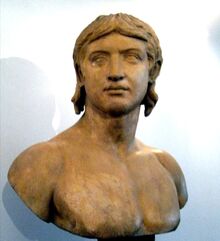
Supreme elder Gawei
Gawei is the founder of a thalassocracy that still bear his name and the very first Supreme Elder of such a realm.
After the Breaking 2000 years ago, several small countries popped, but they all lacked a definite and consolidated power. Among them, Gawei appeared. He was a warrior prodigy since childhood, and as warlord, led his clan to victory in many glorious military campaigns and dared to challenge each of the leaders of these small countries to a 1 on 1 duel.
After 100 battles, Gawei had gained control of 100 clans in the blink of an eye. Some scholars believe that It wasn't hard for him to unify so many clans under his rule, since he was an incredibly tall man of over 2 metres height and had a vigorous and fit body filled with muscles thanks to the struggles he endured after the Breaking happened, when some referred to him in an insulting manner they called him a "sack of meat" due to how big and tough he was. To please his ego, he named his new domains after him and the realm of Gawei was founded as a result.
Personality[]
He was a ruthless and militaristic man, who saw power as the highest good. Regarded as a military genius, he personally commanded his army in many battles during his time as Elder and Supreme Elder. Fitting to his ruthless nature, he did not let the death of innocent civilians restrain his efforts in winning a war. Though his subjects and court were pleased with the Supreme Leader and even worshipped his invented deities to please their lawgiver and great leader.
He had a strong attachment to his 10 wives, who leaded his armies with a ridiculous amount of effectivity and to avoid a succession war, he chose the next leader from one of his 10 daughters, since he was unable to produce a male heir, and obligated the left out candidates to serve the selected Supreme Elder as its Will commanded giving birth to the 9 Wills who currently protect and advice the following rulers that came after Gawei.
Is believed that all his descendants from the main branch of the royal family share his physical traits independently of their sex or age and can be easily recognized by anyone, boasting a muscular body, dark hair and a grumpy face.
2nd Supreme Elder[]
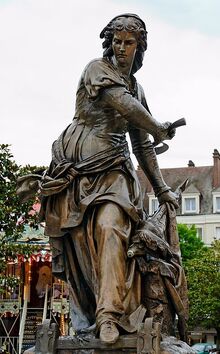
''A slice of the action!'
Mor Gawei was the eldest child of the first Supreme Elder of Gawei and took to the throne after her father's death when she was 14 years old. When she was 15, she won her first major combat at the shores of the Sun river, earning her the nickname Axe of Gawei since that was her main weapon.
Marriage[]
Surprisingly, it was rather difficult for Mor to find a husband: she initially didn't want to get married and when she finally decided to do so for convenience, rumors had been spreading about her from everything from incest to affairs to even suggesting the queen and her cousin the 6th Will were together. These rumors caused other kingdom's princes and warlords to politely refuse her hand. However, they eventually found a disgraced baron called Kenneth, who agreed to marry her as it was a big step up for him, even if the rumors were true. Mor began to have second thoughts though and tried to think of ways to make herself look crazy to get out of it, but all this came to halt when she met Kenneth, who was quite handsome. And so, at 17 years old, she married Kenneth, who was 7 years her senior, and 2 years later the couple welcomed a daughter, Grouch.
As father to the heir, Kenneth retained his position at the side of his leader until his death, which was quite possibly from sexual exhaustion by trying to give the queen a second child. In this he never did succeed, though his efforts were reportedly heroic.
Mor suffered the dead of her husband and died two years after Kenneth died, she's remembered for being a handsome woman for Gawei standards, very popular with women and men.
Personality[]
Mor was an incredibly tenacious and competent combatant thanks to the family traits she inherited from her father. She's strong and firm with a height of 210 cm and a weight of 100kg, with a very aggressive and straightforward fighting style. She usually played dirty and uses any means necessary to win and always attacks with all her might without restraining herself at all. Weak or strong, Mor would always attacked with all her strength and every attack would be aimed to kill her opponent and end the battle.
Besides being very aggressive and determined, as well as intelligent. She was capable as a politician, and had the trust and admiration of her people. Though her true nature was very sadistic, cruel, and ambitious. Her biggest dream of conquering the known world was passed through her descendants, and while she was alive did all she could to actively pursue it, taking whatever chance she sees to invade other countries.
3rd Supreme Elder[]
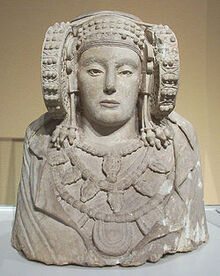
''Cry havoc! And let slip the kunun of war''
Grouch Gawei was another wise and handsome Supreme Elder from the realm of Gawei. As with her predecessor, she was fond of her father. Upon her accession to the throne, she demanded that all the realm squares had a statue of her late father Kenneth and devoted plenty of time to lauding her grandfather, Gawei, and "Mama Mor". She tended to be highly evasive of any questions regarding family lineage to hide her Electra complex.
Biography[]
Grouch later described her childhood as "rather melancholy". Her mother was extremely protective since she was the only heiress of the clan Gawei, and Grouch was raised largely isolated from other children under an elaborate set of rules and protocols devised by her mother. The system prevented the princess from meeting people whom her mother deemed undesirable, and was designed to render her weak and dependent upon them. Grouch shared a bedroom with her mother every night, studied with private tutors to a regular timetable, and spent her play-hours with her dolls until her father made her hold the sword.
By the age of 16, Grouch had taken command of her own army, putting down rebellions in the island against her mother. Grouch's 20-year reign was characterized by her effort to strengthen the domestic authority of the realm of Gawei over subjugated provinces and preserve the political and cultural sovereignty of her holdings.
She continued the military incursions initiated under her grandfather to pacify neighboring kingdoms and maintain their submission to Gawei rule. Serfdom among the population of Gawei could include conscription into the military, enabling the Supreme Elder to raise a standing army that was estimated at 20 000 to 30 000 soldiers. Her army, which was sent on repeated expeditions into neighboring realms, exacted harsh penalties against communities resistant to Gawei domination. Mass executions and massive population transfers were common, and those who were spared their lives were commonly brought back to Gawei as slaves and their valuables seized as bounty to increase the wealth of the nation.
She married a plain but corrupted journeyman who was sentenced to be boiled alive in a cauldron before the Supreme Elder spared him because he looked exactly like her father.
4th Supreme Elder[]
Uiliam Gawei was a the eldest children of the 3rd Supreme elder Grouch, and compared to his siblings he was a successful general, considered one of the greatest military commanders in history. His father Diarmaid was died or was killed (to enhance the prestige of the dynasty) honourably while Uiliam was the leading Gawei commander during the First Straits War. His younger brothers were Tuatha and Allai, and he was brother-in-law to Tat the Fair.
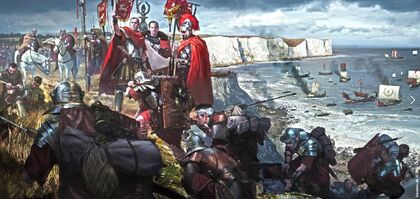
Gawei troops landing on Levytian islands.
Uiliam lived during a period of great tension in the northern straits, when the Gawei established its supremacy over other regional great powers like Navo and Levyt. One of his most famous achievements was at the outbreak of the first straits war, when he sailed with a navy he built after the Gawei sought to win all of the northern regions, but required naval power to do so. In order to challenge the already prominent Levytian naval forces, Gawei built a fleet of thirty quinqueremes and twenty triremes based on a wrecked Levityan quinquereme captured at the north of Umi.
Uiliam distinguished himself for his ability to determine his and his opponent's respective strengths and weaknesses, and to plan battles accordingly. Uilliam's well-planned strategies allowed him to conquer many allies of Levyt.
After the war, Uiliam successfully ran for the office of Supreme Elder. He enacted political, enviromental and financial reforms to enable the supply of more ships and sailors for the navy; however, those reforms were unpopular with members of the gentrified aristocracy, and he fled into voluntary exile to return again with an army of mercenaries to purge his political rival with the implicit help of the 9 Will.
Uiliam was married to Meve, the sister of Tat the fair, a wealthy aristocrat. His bride brought with her a large dowry, which significantly increased Uiliam's already substantial family fortune. Meve loved her husband, but she attempted to divorce him because he consorted with courtesans but prevented her from appearing at court. Once she dared to appear he seized her in court and carried her home again through the crowded temples to get her pregnant in a countryside villa where he decided to spend his last. She lived with him until her death, which came soon after, and gave birth to two children, a daughter and a son, Uilliam the Younger. Uilliam was famed throughout his life for his physical attractiveness, of which he was inordinately vain.
5th Supreme Elder[]
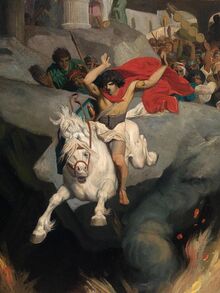
The Supreme Elder Nidza's last ride
Nidza Gawei is the first Supreme Elder for whom contemporary historiography is able to assign verifiable dates. He was the grandson of the 4th Supreme Elder and Uiliam the younger who killed by a pestilence that also massacred half of the populace without mercy. He took office in a critical moment, peasants had abandoned the fields and rebellions became rampant.
Up to this time, both the sun god Inn-z and Sotet were enshrined in the Supreme Elder's residence. The elders, over-awed with having to cohabit with these powerful deities, set up separate enshrinements to house them in different regions.
In the 7th year, the Supreme Elder decreed a divination to be performed, and so he made a trip to the green plains and invoked the deities of his ancestors. The sibyl became possessed by a god, who identified himself as Cenno and said that the land will be pacified by sacrificing that which it held most dear. A pit opened of its own accord, a deep passage to the underworld that stood ready to accept the sacrifice. The Supreme Elder recognized that the dearest thing to Gawei was its brave and young soldiers, and so dressed in full battle armor, he rode his horse into the pit. The Supreme Elder died, but Gawei was saved from the pestilence, the land was calmed, the wars ended in victory and the five cereal crops ripened.
Before dying, he decreed a census be taken of the populace, "with grades of seniority, and the order of forced labour". The taxes, imposed in the form of mandatory labor, were called "bow-end tax" for men and "finger-end tax" for women. Peace and prosperity ensued and the population of Gawei grew with the polygamic unions of its inhabitants. The Supreme Elder after being buried in that pit received the title "The first mighty, the august founder of the country".
The Pulsa[]
The Pulsa are the family of gods that had been worshipped by Gawei's inhabitants since the rule of the first Supreme elder who introduced the cult to the region. The family of gods is composed by Inn-z, his wife Kami and their children, Cenno and Maku. As well as Sotet whom Inn-z ever-battles to keep Goshen safe.
The inhabitants of the Northern Kingdoms know very little about the cult of the Pulsa. The head of this religion is an elder, which may also be the Supreme Elder.
Summary[]
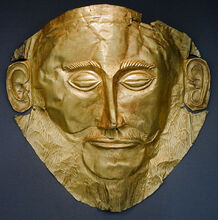
Ritual mask of Inn-z/Sotet
The first Supreme elder was looking for a symbol which would unite the realm better and more permanently than only the ruling dynasty. By skillfully managing with cash and giving priests his autocratic favor, he made the cult begin to gain a new crowd of followers throughout the whole realm. In exchange, the Supreme elder demanded absolute support for his policies from the clergy, practically making priesthood another form of civil service.
The 2nd Supreme elder issued a special decree which granted the cult the status of official state religion. The cult has its roots in other cultures that were assimilated during Gawei's campaigns. The primary deity is Inn-z (The Sun), giver of warmth and life, protector of humankind, but also capable of being cruel and destructive when taking the form of his twin or corrupted personality Sotet. Since the royal decree it has also been the patron of the ruling dynasty. The most important holidays are the equinoxes and birthday of the current Supreme elder. The central ceremonies are held in the capital, performed by the Supreme elder acting as the head of the religion.
All holidays are celebrated with great pomp, to the accompaniment of solemn music and in the presence of all major officials, commanders, and aristocrats. After official ceremonies, folk games with food and beverage take place. It is noteworthy that a number of customs related with the holidays are derived directly from goshenite tradition. Priests of the cult wear white raiments embroidered in gold and silver during devotions, celebrations, and holidays; as casual clothes they wear red civilian dresses.
Being a priest of the Pulsa is just another career path in the realm of Gawei. Finishing a theological college and passing the exams guarantees gaining an official title of "priest". Subsequently, depending on education, the fledgling priest can get to one of the minor temples or directly to the local Governor's bureau. Then everything depends on his involvement in fulfilling the duties... And his political sense.
Under the current Supreme elder, religion has much of a form of a formality then a real cult as such Gawei isn't plagued by uprising and racism based in religious fanaticism like in other regions. Other religions are tolerated but its priests are kept away from political influence.
Deities[]
Inn-z/Sotet[]
Gawei gave his sun god, Inn-z, supremacy, recognizing the importance of sunlight in producing food. The Supreme elders of Gawei believed they were descendants of Inn-z.The daily rise, overhead passage, and setting of Inn-z greatly impressed the Gawei. At dawn, Inn-z was seen as a newborn child, issuing from his father the sky. By midday, Inn-z was thought of as a flying bird or sailing boat. At sunset, Inn-z was seen as an old man descending to the land of the dead. Overnight, Inn-z as a boat sailed eastward through the underworld in preparation for the next day’s ascent. Along the way he had to battle or evade his malicious self, Sotet, the great kunun of the underworld that sought to devour him. Part of the worship of Inn-z involved creating magic to aid or protect Inn-z in his nightly struggle with Sotet, helping to assure the return of the sun specially during an eclipse.
Kami[]
The goddess of the moon and the sea, mother of the twin gods Cenno and Maku. When Inn-z, her husband during the day, inherited the rule of the gods from his old father, she worked together with him to bring civilization to regions conquered by Gawei. She taught through Gawei's tongue cloth making and curing the sick, and introduced the concept of polyamory marriage. She ruled Gawei through his descendant Gawei wisely while his husband traveled the world spreading civilization elsewhere through the sword of Gawei's warriors. The magic of Kami was a very powerful aid in attaining a favorable sea. Her magic abilities improved greatly when she took advantage of her husband nightly version (Sotet) to trick him into revealing his magical secret, giving her access to some of his power until his wrath and passion got her pregnant.
Cenno[]
The god of music, archery (only as sport), medicine, colonization, herds, justice, war and divination, he represents many of the better qualities of humankind, including order, intelligence, rationalization, and an appreciation for the finer things. He could cause or cure the plague. He is often perceived as the perfect male. Apollo and his twin sister Maku were fathered by Inn-z/Sotet with Kami when she incurred the wrath of the main god of the sun and eclipses in a silly dispute. He sat in his hall, dispensing justice and resolving the disputes of both gods and men. The legends say that he never failed to bring disputing parties to agreement or pass judgment that all agreed was fair.
Maku[]
The goddess of love hunt, beauty, sexual rapture and the protector of children, she is often seen with the bow her twin brother Cenno gifted her and with wild animals, or wandering in the woods accompanied by her acolytes. Maku was said to be aloof and free-spirited, free of husband until, according to legends, she married the first Supreme Elder's father in a mythical ceremony and home. She exacts complete and deadly retribution for those who transgressed against the gods or herself. She turned one of the Will into a stag that was torn apart by his own hunting dogs, all for accidentally seeing her bathing. She was also believe to be responsible for the deaths of women in childbirth.